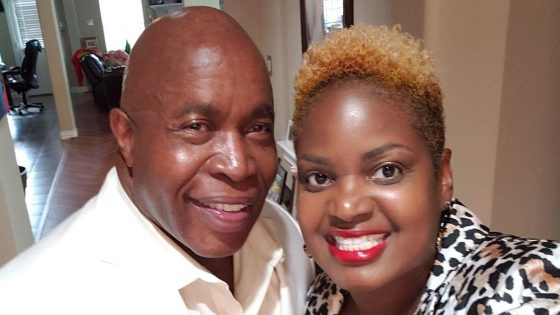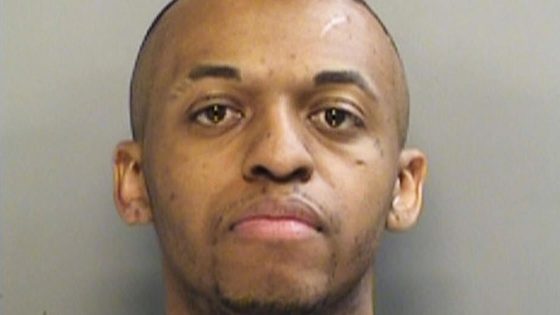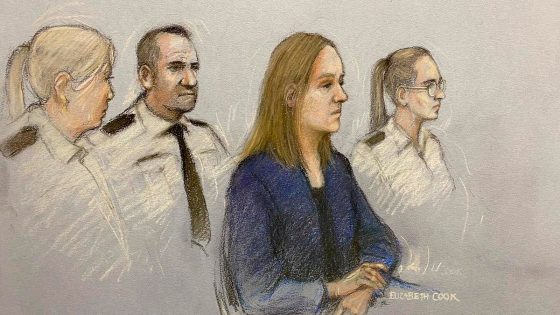In the early hours of July 27, 2019, a tragic scene unfolded in a quiet Houston neighborhood that would shake the local community to its core. Authorities received a frantic call reporting gunshots fired at the home of Renard and Patricia Spivey, a couple known to many — Renard as a respected sheriff’s deputy and homemade celebrity from his role as a bailiff on a legal-themed television show, and Patricia as a devoted caregiver, always ready to lend a hand to those in need.
- Patricia Spivey found dead from gunshots.
- Renard Spivey claims accidental shooting during argument.
- Differences in narratives raise suspicion.
- Defense argues self-defense, family disputes it.
- Jury acquits Renard Spivey of murder.
- Patricia's family struggles with her loss.
The clock read just after 3 a.m. when first responders arrived at the Spivey residence, only to discover 52-year-old Patricia lifeless in the closet of their bedroom, victim to multiple gunshot wounds. Her husband, Renard, was found injured, a bullet lodged in his leg. Initial accounts painted a picture of a altercation spiraling out of control, with Renard claiming the couple had been arguing over a gun when it discharged.
“Where’d you shoot her?” an officer asked Renard during an early interrogation captured on body camera footage. His response, “We was tussling — in the chest and the arm,” raised immediate suspicions among officers who wondered how a gun could unintentionally fire multiple times. Forensic evidence would later reveal that Patricia suffered significant injuries, including one shot that pierced her lung and heart, a clear indication to authorities that this was much more than a tragic accident.
Patricia’s death was shocking not only for the community but also for her family. Her father, who was staying with the Spiveys and suffering from dementia, expressed confusion amidst the chaos, failing to comprehend the violent outburst he had barely witnessed. Patricia’s daughter, Patrina Marshall, arrived at the scene grappling with disbelief, relaying how she instinctively questioned, “Did my mom do something? Did Renard do something?” The answers, as it turned out, were much more complicated.
As the investigation unfolded, it became clear that the relationship between Renard and Patricia was fraught with tension. Friends and family began recounting moments that hinted at underlying issues — disputes about Renard’s behavior and suspected steroid use, as well as increasing arguments about the future of their marriage. “There was a struggle…not just over the gun, but over their lives together,” noted Patrina, recalling how her mother’s demeanor changed in the weeks leading to the shooting.
Despite his injuries and overwhelming grief, Renard found himself at the center of a criminal investigation. Detained initially but later released, he faced charges of murder just days after the incident. “It was tough,” Renard would later recall of his time behind bars, not knowing how he would be perceived after allegations surfaced that painted him in a sinister light.
Legal experts examining the case highlighted a significant obstacle for the prosecution: the burden of proof rested solely on them to establish beyond a reasonable doubt that Renard had intentionally pulled the trigger. The forensic examination presented a complex picture, as investigators unearthed evidence of three separate gunshots, all fired in quick succession. But was that enough to deem him guilty of murder, or could it have been a tragic accident?
As the trial commenced in late 2023, emotional testimonies clashed in the courtroom. Renard’s defense team argued that he acted out of self-defense, highlighting that he feared for his life when Patricia allegedly threatened him with the firearm. Friends of Patricia supported the prosecution’s portrayal of Renard as controlling and potentially volatile, especially as they recalled Patricia’s final days where she seemed determined to leave the relationship.
Tensions peaked in the courtroom as the jury deliberated. The emotional weight of the case — a husband accused of killing his wife, friends grappling with loss, and a community left to pick up the pieces — was palpable. After a lengthy wait, the jury returned with their verdict: not guilty.
The outcome stunned Patricia’s family and friends. Patrina expressed disbelief, enveloped in pain and sorrow as she reflected on her mother’s untimely death. “I felt like I held my breath, and then ‘not guilty.’ I don’t understand how they got there,” she said, grappling with the complexities of the case.
Renard’s acquittal brought no tangible relief. “I’ve never stopped having hope,” he remarked, emphasizing the emotional turmoil that still plagued him. His life irrevocably altered, he now faced a world without Patricia, coping with memories of their shared dreams and aspirations that ended in tragedy.
As the dust settled and the case concluded, both families were left to ponder significant questions: What really happened that night in the Spivey home? Was it a lamentable accident amidst an escalating argument, or something more sinister? While Renard returned to his community activities, Patricia’s memory remained a bittersweet part of the lives she touched, underscoring the profound impact of love lost amidst the turmoil of an unresolved tragedy.

































